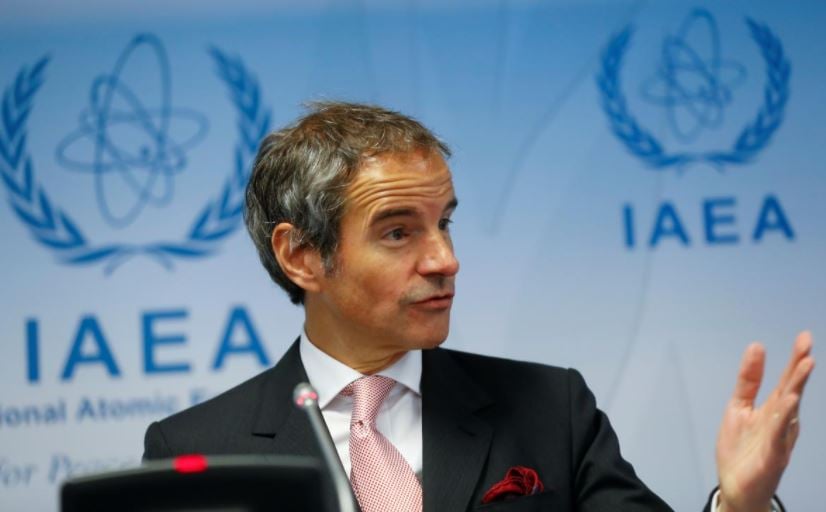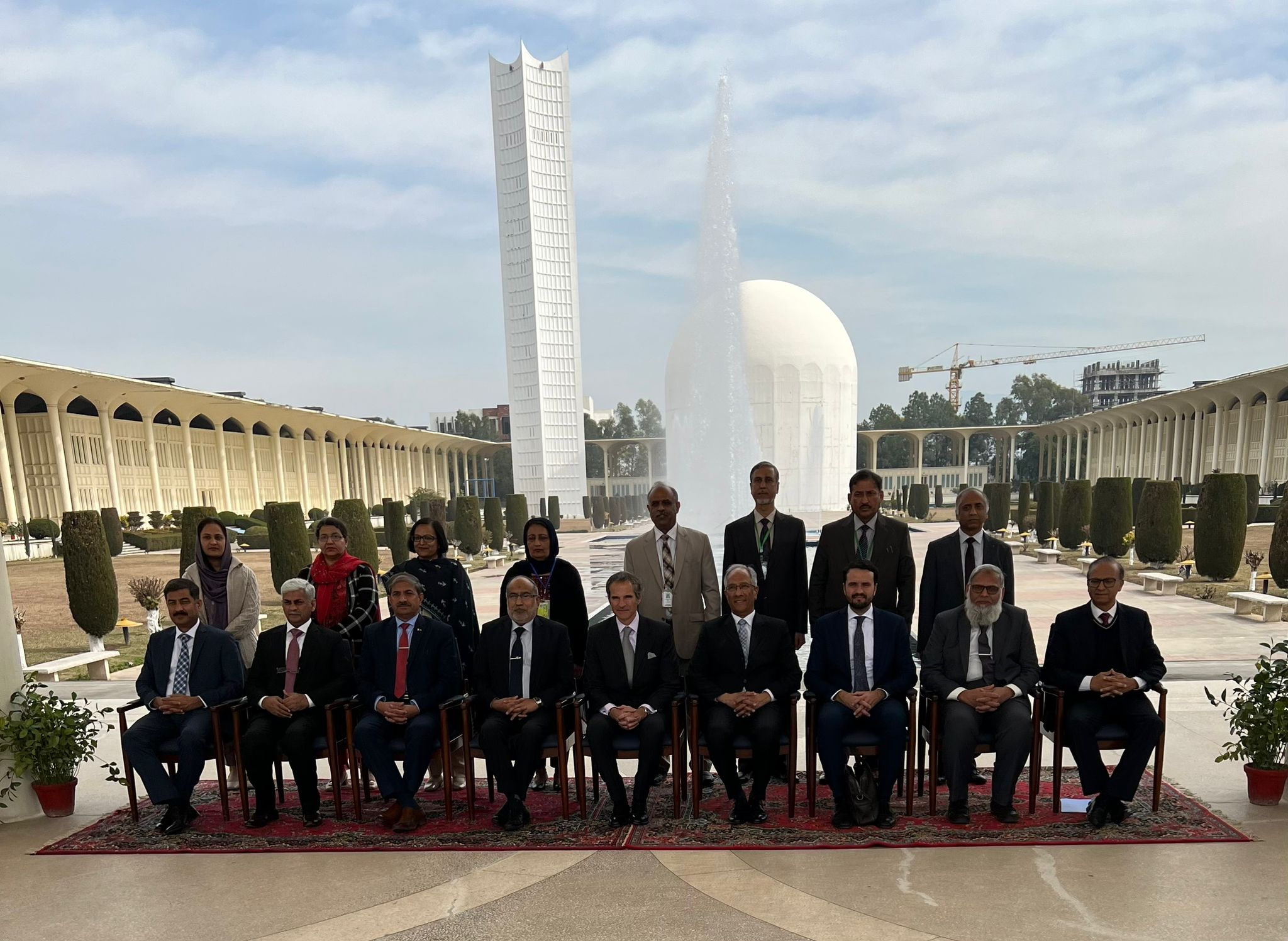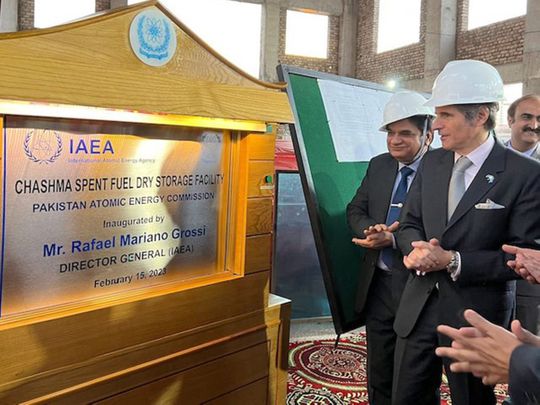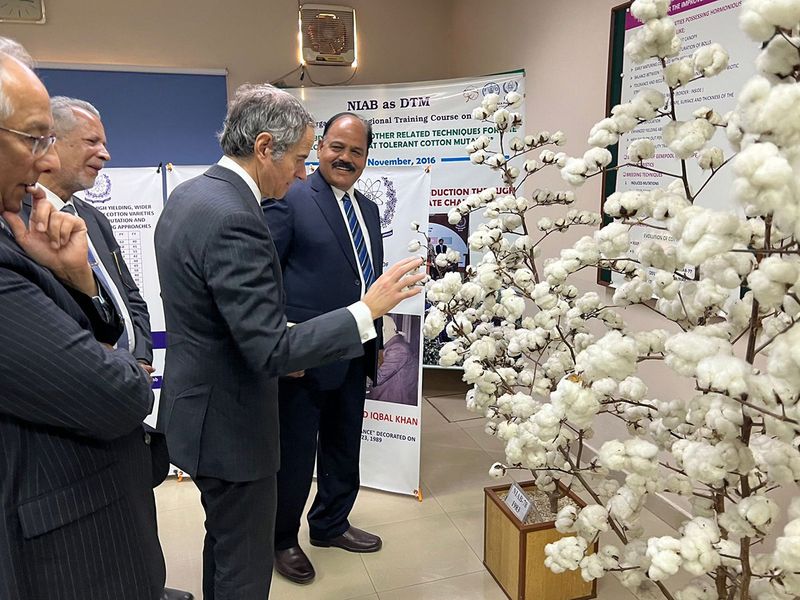ghazi52
PDF THINK TANK: ANALYST

- Joined
- Mar 21, 2007
- Messages
- 104,342
- Reaction score
- 106
- Country
- Location
,.,..,
APP
February 14, 2023

ISLAMABAD: Rafael Mariano Grossi, director-general of International Atomic Energy Agency (IAEA), will visit Pakistan from February 15-16 to visit sites employing nuclear technology.
During his two-day visit, the DG IAEA will hold high level meetings and undertake visits to different institutions employing nuclear technology in the fields of health, agriculture, industry and power generation, the Foreign Office said in a statement on Tuesday.
The visit will provide an opportunity to Pakistan and the IAEA to explore avenues for further strengthening their ongoing cooperation in the area of peaceful applications of nuclear technology for the socio-economic development of the country, the statement added.
Pakistan is a founding member of the agency since 1957 and enjoys longstanding and mutually beneficial collaboration with the IAEA.
Earlier, a group of UN Disarmament Fellows comprising officers from 24 countries, visited Pakistan from October 8 to 10 as part of their international study tour under the auspices of the UN Office for Disarmament Affairs (UNoDA).
During the visit, they received a briefing on Pakistan’s perspective on arms control, disarmament, and nuclear non-proliferation as well as the imperative of unhindered access to dual-use technologies for peaceful socio-economic applications, said an official statement issued by the Ministry of Foreign Affairs.
The group comprised officers from 24 countries including Algeria, Angola, Antigua & Barbuda, Argentina, Cambodia, Egypt, France, Ghana, Guatemala, Guyana, Honduras, Hungary, Iran, Libya, Montenegro, Pakistan, Palau, Poland, Saint Kits & Nevis, Togo, United States, Uzbekistan, Vietnam and Yemen.
UN nuclear chief to arrive in Pakistan tomorrow
DG IAEA will undertake visits to different institutions employing nuclear technology during his two-day visit, says FOAPP
February 14, 2023

ISLAMABAD: Rafael Mariano Grossi, director-general of International Atomic Energy Agency (IAEA), will visit Pakistan from February 15-16 to visit sites employing nuclear technology.
During his two-day visit, the DG IAEA will hold high level meetings and undertake visits to different institutions employing nuclear technology in the fields of health, agriculture, industry and power generation, the Foreign Office said in a statement on Tuesday.
The visit will provide an opportunity to Pakistan and the IAEA to explore avenues for further strengthening their ongoing cooperation in the area of peaceful applications of nuclear technology for the socio-economic development of the country, the statement added.
Pakistan is a founding member of the agency since 1957 and enjoys longstanding and mutually beneficial collaboration with the IAEA.
Earlier, a group of UN Disarmament Fellows comprising officers from 24 countries, visited Pakistan from October 8 to 10 as part of their international study tour under the auspices of the UN Office for Disarmament Affairs (UNoDA).
During the visit, they received a briefing on Pakistan’s perspective on arms control, disarmament, and nuclear non-proliferation as well as the imperative of unhindered access to dual-use technologies for peaceful socio-economic applications, said an official statement issued by the Ministry of Foreign Affairs.
The group comprised officers from 24 countries including Algeria, Angola, Antigua & Barbuda, Argentina, Cambodia, Egypt, France, Ghana, Guatemala, Guyana, Honduras, Hungary, Iran, Libya, Montenegro, Pakistan, Palau, Poland, Saint Kits & Nevis, Togo, United States, Uzbekistan, Vietnam and Yemen.







